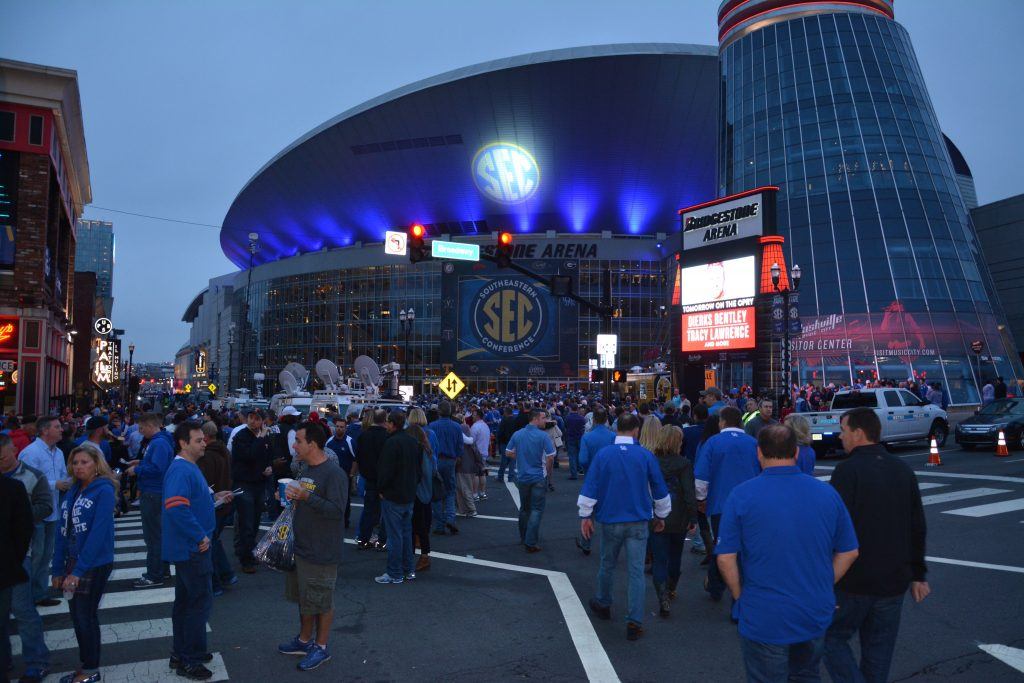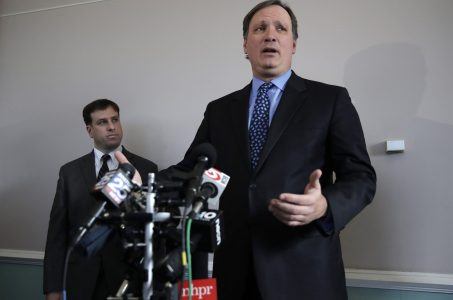Tennessee Lottery Looks to Pass Sports Betting Regulations Next Month
Posted on: January 19, 2020, 12:34h.
Last updated on: January 19, 2020, 10:14h.
Tennessee could have its rules for sports betting in place within a month.

The Tennessee Education Lottery Corp.’s Board of Directors is scheduled to meet in Nashville on Feb. 19. That’s a day after the TEL Sports Wagering Advisory Council is set to meet to further discuss the draft regulations the lottery released in late November.
The public comment period ended Jan. 6, and the council began reviewing those remarks this past week.
The goal is the TEL Board of Directors votes on the rules and regulations at its February 19 meeting,” Dave Smith, TEL communications director, told Casino.org.
Whether that means lottery officials would be able to take applications immediately afterward is unclear. Earlier this month, state Rep. Rick Staples (D-Knoxville), who sponsored the bill legalizing sports betting in Tennessee, told WVLT-TV in Knoxville earlier this month that he and other leaders were hopeful they could start taking applications next month and possibly start product rollouts in March.
Unlike every other state that has legalized sports betting in the US, Tennessee opted to go exclusively with online sports betting applications, and not require brick-and-mortar sportsbook establishments. Since the state has no casinos, lawmakers placed sports betting under the TEL’s auspices.
Critics Outspoken Against Hold Requirement
Many praised Tennessee for the innovative approach it took with sports betting law. It’s an approach that acknowledged just how much mobile applications dominate in states that allow both retail and online establishments. In states like New Jersey, Pennsylvania and Indiana, the handle for online betting far exceeds the amount brick-and-mortar sportsbooks take. In some cases, it’s as wide as an 80/20 split.
However, avid sports bettors and those in the industry have been critical about a proposed rule that would require sportsbooks to cap payouts at 85 percent. The resulting 15 percent hold is up to three times as much as the average rate for the sports wagering industry.
“After reading Tennessee’s insane argument for a 15 percent hold, it’s painfully clear that if your state lottery is involved in any way, it will be the absolute worst product available,” tweeted Robert Walker, director of sports book operations for US Bookmaking. “Ripe with ineptitude or corruption or both.”
During the public comment period, the proposed hold rate received the second-most comments of any of the proposed rules.
Tax Rate, League Data Concerns
Unlike other states, where licenses have been tied to established casinos, Tennessee did not limit the number of sports betting licenses it would award. The license to operate an application is $750,000 annually.
However, with the proposed payout cap, a study by global gaming consultants Eilers and Krejcik on behalf of the iDevelopment and Economic Association indicated that two-thirds of the sportsbooks it polled would reconsider applying for a license in the Volunteer State.
Other aspects of Tennessee’s sports betting that have drawn criticism are its requirement for using official league data and its high tax rate.
Tennessee is one of only three states that requires sportsbooks to use official league data to score live betting opportunities, joining Illinois and Michigan. However, Tennessee’s law allows for an exception if the league cannot provide the data under “commercially reasonable terms.”
The state also will tax licensees at 20 percent of their adjusted gross revenues each month. Of the states that generate its sports betting income off a tax, that rate is only lower than Pennsylvania’s 36 percent.
Related News Articles
Lottery Industry Stakes Claim to US Sports Betting Market
Louisiana Mobile Sports Betting Expected to Launch Friday, Insiders Say
Most Popular
Mirage Las Vegas Demolition to Start Next Week, Atrium a Goner
Where All the Mirage Relics Will Go
Most Commented
-
Bally’s Facing Five Months of Daily Demolition for Chicago Casino
— June 18, 2024 — 12 Comments -
Chicago Pension Mess Highlights Need for Bally’s Casino
— July 2, 2024 — 5 Comments
















No comments yet